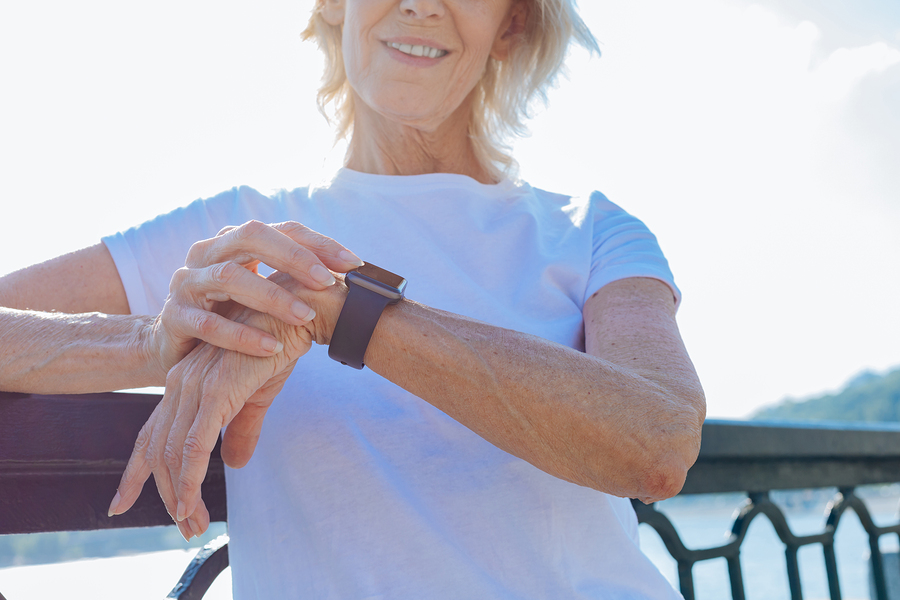Can tech devices really help to improve our health?
There appears to be no end to new gadgets and gizmos being launched to help monitor and improve our health and Brits are embracing this health tech revolution with one in seven of us reported to owning a wearable device.
With the British Heart Foundation reporting that physical inactivity contributes to premature death in the UK and around 5 million adults now spending more than 8 hours a day sitting down the trend for developing health tech is on the up.
Rebecca Hussey, physiologist at AXA PPP healthcare says “statistics show there is an obvious need for us to get moving so anything that will help us to monitor how well we are doing and if we are doing the correct type of exercise is of enormous benefit. Health tech devices from fitness bands to smart watches and sensors are now being widely adopted by many people who aim to take personal responsibility for their health.”
And it’s no longer all just about heart rate and steps anymore.
“So much has been developed in terms of wearable tech recently. There are now tiny chips and sensors which are in trainers or attached to shorts and can provide more specific information on how we move, so we are able to achieve a much better understanding of how our body works.”
Here are 5 tips from Rebecca Hussey on how to get the most out of your health tech device:
It is important to understand your health
Before any health and fitness goals are set we must understand our diet, exercise habits, sleep and mental wellbeing. There are devices that can show us if we need to make any improvements in these areas.
There are lightweight wristbands made to be worn all day and night which can track how many steps you take, how well you sleep and lots more besides. Rebecca especially likes the Lumo Lift (posture coach) which is worn near your collarbone and used together with an app tracks your activity levels and vibrates every time you slouch! It’s a great way to helping to prevent back pain.
Set achievable targets
Once we have identified which areas we need to work on we should set achievable goals. Many people fail to achieve the recommended 150 minutes of moderate exercise a week through lack of focus but with fitness devices daily goals are easy to stick to as there are reminders to move more.
Rebecca recommends trying a sports watch: “these will encourage you to move more which can only be a positive thing.”
“The Apple Smart watch 2 is not just for really sporty types, it will remind you when to stand, move or exercise every day. It will also post regular updates and encourages you to pursue new goals.
“There is also an app to help set goals called MapMyRun. This will remind you when to run and can track your run using the GPS on your smartphone.”
Eat healthily
An unhealthy diet can lead to cardiovascular disease, cancer, type 2 diabetes and other conditions linked to obesity.
“It can be difficult to keep track of what we eat each day; especially when we lead busy lives, but there are lots of apps that make it easy to log what we’ve eaten,” says Rebecca.
Two to try are My Fitness Pal which is a free online calorie counter and diet plan and Tellspec Food scanner which is connected to an app and can analyse and track the foods you eat.
Click here for some healthy salad ideas
Get a good night’s sleep
Sleeping well has many benefits such as boosting memory and reducing our desire to snack so it is a good idea to know more about the quality of the sleep you are getting.
There are devices such as the Fitbit charge 2 or Fitbit Blaze which have an accurate heart rate monitor. They work by recording total sleep time and if and for how long you wake, and so on.
Take a look at what to cut out if you want a better night’s sleep
Maintain a healthy weight
According to the NHS, obesity is linked to a number of potentially life-threatening conditions, including heart disease and stroke, some cancers and type 2 diabetes.
Rebecca recommends tracking your weight loss, goals and progress via a smart scale which hooks up to an app.
“Tracking weight is much more than how heavy you are or what your BMI is. Muscle mass and body fat percentage are more accurate measures.”
Two smart scales to check out are:
- QardioBase – measures heart rate, water percentage, body, fat, bone mass and muscle mass to help understand your body better and monitor your long term progress. It works with iOS 8.0 or later, Kindle, Android 4.4 or later, Android Wear and Apple Watch.
- Fitbit Aria Wi-Fi Smart Scale – will send weight information to your computer and display the data in an easy to read online graph. It works with Fitbit Trackers and the Fitbit App so you can set goals and use its Calorie Coaching function to achieve them.
Take a look at our diet and exercise section for more ideas on how to get fitter and eat healthily.
Disclaimer
All content on Silversurfers.com is provided for general information only, and should not be treated at all as a substitute for the medical advice of your own doctor or any other health care professional. Silversurfers will not be responsible or liable for any diagnosis made by a user based on the content on www.silversurfers.com and we are also not liable for the content of any external websites or links from or to Silversurfers to any other websites. Please always consult your own doctor if you’re in any way concerned about any aspect of your health
Melina - Assistant Editor
Latest posts by Melina - Assistant Editor (see all)
- Three must have toys of the late 60’s - November 24, 2024
- Remembering the Big Freeze of 1963 - November 21, 2024
- Is your hot water bottle safe to use? Tips on what to look out for - November 20, 2024
- Tips on dealing with a frozen windscreen without using a spray de-icer - November 19, 2024
- 5 Homemade edible gifts in a jar - November 15, 2024





















